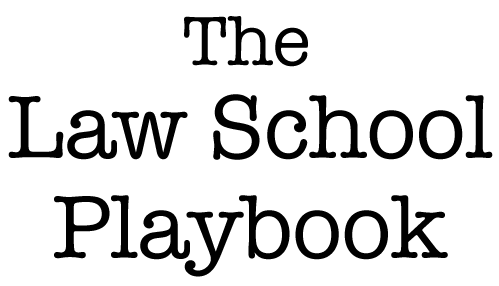Dear Student,
Welcome to The Law School Playbook! I’m Halle Hara, a professor of academic success and personal skills coach to law students and attorneys. I’m glad you’re here! I’m a few years older than you. When I wanted information growing up, I turned to an outdated set of encyclopedias my parents bought from a door-to-door salesman or I went to the library. Reading is different today. Inquiring minds no longer grab the musty, dust-covered encyclopedias from the shelf but instead are immersed in digital media approximately seven hours per day. This progress is truly amazing—nearly every question you can conceive of can be answered in a few clicks. However, reading in this digital age has taken a toll on our intellect.
Digital reading has pushed us away from developing into expert readers and left us as novices who fail to think critically about what we are reading. Cognitive scientist and reading scholar Maryanne Wolf opines that the quality of our attention has changed with digital reading and so has our ability to analogize, infer, and distinguish what we read. It turns out that the skills required for deep, critical reading are much like the money in health flexible spending accounts—they are “use it or lose it.”
Much of what we do today as readers is unconscious. We change media sources multiple times an hour and check our phones constantly. We use light reading skills to take in a constant stream of information that has us thinking with less depth and in shorter intervals. Wolf describes our reading behavior as triage; in other words, we make a tradeoff between “our need to know with our need to save and gain time.” She explains that we are “outsourcing our intelligence to the information outlets that offer the fastest, simplest, most digestible distillations of information we no longer want to think about ourselves.” That sounds harsh, and most of us would be reluctant to agree that we are outsourcing our intelligence. However, there may be some truth to it.
In researching this topic, I came across a website called “Four Minute Books,” which describes entire books with short summaries that capture the three main ideas. Each summary is designed to be read in four minutes. The site claims that nearly 24,000 “readers” receive the weekly summaries, which I suppose one could argue might inspire a person to actually read the book. That doesn’t seem to be the point, however, when site claims “if this blog doesn’t make you smarter in 4 minutes, no website will.”
So if the quality of our digital reading and thinking is on the decline, how can we engage in the critical reading and thinking required of lawyers? We have to overcome what Wolf calls our lack of “cognitive patience” to make room for analytical thinking and sustained attention. The episodes that follow will provide you with specific tips on how to do that. Generally speaking, we have to approach our law-related reading with an eye toward problem solving. In other words, we need to think beyond the screen. It is essential to your academic career and to the profession.
If would you like to read this episode, get suggestions for further reading, or to request individual coaching with me, please visit my website at www.lawschoolplaybook.com.
As always, do your best, and I’ll be rooting for you!
References and Further Reading
Nicholas Carr, The Shallows: What the Internet is Doing to Our Brains 31, 34, 120 (2011).
Kari Mercer Dalton, Their Brains on Google: How Digital Technologies Are Altering the Millennial Generation's Brain and Impacting Legal Education, 16 SMU Sci. & Tech. L. Rev. 409 (2013).
Niklas Goeke, Four Minute Books, https://fourminutebooks.com (last visited May 23, 2019).
Laura P. Graham, Generation Z Goes to Law School: Teaching and Reaching Law Students in the Post-Millennial Generation, 41 U. Ark. Little Rock L. Rev. 29 (2018).
Barbara A. Kalinowski, Logic Ab Initio: A Functional Approach to Improve Law Students’ Critical Thinking Skills, 22 Legal Writing 109 (2018).
Patrick Meyer, The Google Effect, Multitasking, and Lost Linearity: What We Should Do, 42 Ohio N.U. L. Rev. 705 (2016).
Patricia Grande Montana, Bridging the Reading Gap in the Law School Classroom, 45 Cap. U. L. Rev. 433 (2017).
Lauren A. Newell, Redefining Attention (and Revamping the Legal Profession) for the Digital Generation, 15 Nev. L.J. 754, 779 (2015).
Maryanne Wolf, Reader, Come Home: The Reading Brain in a Digital World 7–8, 61–62, 71, 75, 92 (2018).
Mark Yates, Text Is Still A Noun: Preserving Linear Text-Based Literacy in an E-Literate World, 18 Legal Writing: J. Legal Writing Inst. 119 (2012).
